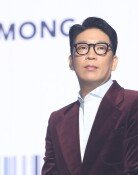New Speaker elected for 22 National Assembly
New Speaker elected for 22 National Assembly
Posted June. 06, 2024 07:58,
Updated June. 06, 2024 07:58
The 22nd National Assembly commenced its term on Wednesday, marking a significant moment in the political landscape. In a session attended only by opposition party leaders, lawmaker Woo Won-sik of the Democratic Party was elected as the Speaker. Notably, the ruling party abstained from attending, citing a lack of alignment between the ruling and opposition parties. This unprecedented move by the ruling party, the first since the Constitutional Assembly, underscores the political tension and the potential challenges ahead.
Due to the disruption, there is a greater risk of the composition of the parliament being delayed amid a power struggle over the allocation of standing committee chairs, or the large opposition party occupying all 18 standing committee chairs. Either way, this is a far cry from the public's expectations. Several key agendas, such as the national pension reform bill, which remains pending even after several compromises in the previous National Assembly, and the K-Chips bill, in which both parties are relatively aligned, are not issues that can be leisurely postponed.
The People Power Party claims that it cannot give up the Legislative and Judiciary Committee Chair and the Steering Committee Chair because it has been general practice for a majority party member to be the Speaker of the National Assembly and the minority party member to be the chair of the Legislative and Judiciary Committee. Additionally, the chair of the Steering Committee, which liaisons with the President's Office, demands that the ruling party maintain traditional practices. On the other hand, while the Democratic Party can hold 18 standing committee chairs positions 11 to 7, it claims to occupy all positions backed by public support from the April general election. In addition, the Democratic Party claims that it will follow the National Assembly Act if the ruling and opposition parties cannot reach an agreement by June 7. As the National Assembly Act stipulates that the standing committee chairman be elected through a vote at the plenary session, the Democratic Party is likely to have it their own way.
If such a situation unfolds, a confrontation between the ruling and opposition parties would be inevitable from the start, hence the crucial role of the National Assembly Speaker. “We value public opinion over neutrality,” said Woo. However, there are growing concerns that the 22nd National Assembly will exercise ‘veto democracy,’ in which the government’s legislation is ignored by the opposition party, whose proposed bills are vetoed by the president. This is why the role of the new National Assembly Speaker is more important than ever, particularly in demonstrating mature political skills between the ruling and opposition parties. The exclusion of partisanship in the 2002 National Assembly Act, which requires the Speaker of the National Assembly to abandon party affiliation and work as an independent party, is a good guideline.
The Democratic Party must resist the temptation to prioritize power politics. The party should learn from its mistakes from four years ago, when it failed the election and did things its way. Instead of insisting on“following traditional practice,” the party should make concessions based on the difference in the number of seats it holds in parliament.
The number of seats seems most important, but we have often seen the public assessment react by considering which party pays more attention to public sentiment. The 22nd National Assembly is no different. This is why the ruling and opposition parties should shift their focus away from confrontation. The new Speaker must be aware of restoring trust between the two parties.



![[천광암 칼럼]장동혁은 계획이 다 있구나](https://dimg.donga.com/c/138/175/90/1/wps/NEWS/IMAGE/2025/12/14/132964515.1.jpg)
![30년만에 나타난 ‘친구’…치매 아버지 땅 노린 ‘사냥꾼’이었다[히어로콘텐츠/헌트①-上]](https://dimg.donga.com/c/138/175/90/1/wps/NEWS/IMAGE/2025/12/14/132961909.1.jpg)


